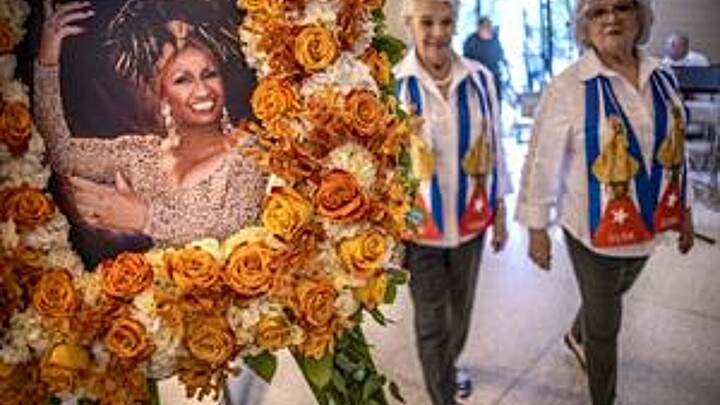Entertainment
Cuban protest song “Patria y Vida” wins Latin Grammy
Despite being banned in Cuba, the song has become a hymn for the country’s freedom fighters.
November 18, 2021 7:20pm
Updated: November 18, 2021 11:12pm
“Patria y Vida,” Cuba’s protest rap song, won the Latin Grammy for the Best Urban Song on Thursday.
The song has become an anthem and protest slogan for all those who aspire for freedom in Cuba. “Patria y Vida” became a chant during the mass protests in Cuba in July of this year. Now, the song is banned in Cuba.
The title, “Fatherland and Life,” is a wordplay on the regime’s national slogan, “Fatherland or Death” (Patria o Muerte). The lyrics talk about the life of Cubans under totalitarianism and criticize the country’s regime.
“The savvy use of popular song is fundamental to the voice of ‘the Cubans of now’… the community of artists who have rallied together in opposition to the government,” explained musician Lilly Blanco in an interview with NPR.
“In a country with restricted access to the outside world and, at times, each other, the artists imbue style, form, and lyrics with messages crucial to the movement – some for the world and others just for their gente,” she said.
The song is a collaboration between several Cuban musicians who live in exile, including Alexander Delgado and Randy Malcom of the group Gente de Zona, Yotuel Romero of the hip-hop band Orishas, and singer Descemer Bueno. Rappers Maykel Osorbo and Eliecer “El Funky” Marquez are still on the island.
Released in February 2021, the song has over 9 million views on YouTube. The video was recorded in secret by Osorbo and artist Luis Manuel Otero, who were routinely followed by authorities.
The song is “a hymn that represents the people in their fight against dictatorship,” said Congresswoman Maria Elvira Salazar, congratulating the artists on Twitter.
🚨ÚLTIMA HORA:
— María Elvira Salazar 🇺🇸 (@MaElviraSalazar) November 18, 2021
¡Muchísimas Felicidades a @Yotuel007, al Movimiento San Isidro, y a todos los integrantes de la canción Patria y Vida que se lleva el Premio Grammy de Mejor Canción Urbana — himno que representa a un pueblo en su lucha contra la dictadura! #SOSCuba🇨🇺 #LatinGRAMMYs pic.twitter.com/t7Hfdf4SsY
Since the song’s release, Cuban authorities detained Maykel Osorbo in May on charges of contempt and disorder.
“In just three years, the Cuban regime has committed more than 120 repressive acts of all kinds against Osorbo in attempts to silence him from expressing his demands for fundamental freedoms and rights. Since his latest arbitrary arrest, he has not been guaranteed due process. Freedom of expression is a fundamental human right and should not be criminalized. The working group should investigate the case of Osorbo and publicly release its findings,” reported Freedom House.
The song’s message is clear: “se acabó” (it is over), referring to the end of Cuban oppression towards its people.









